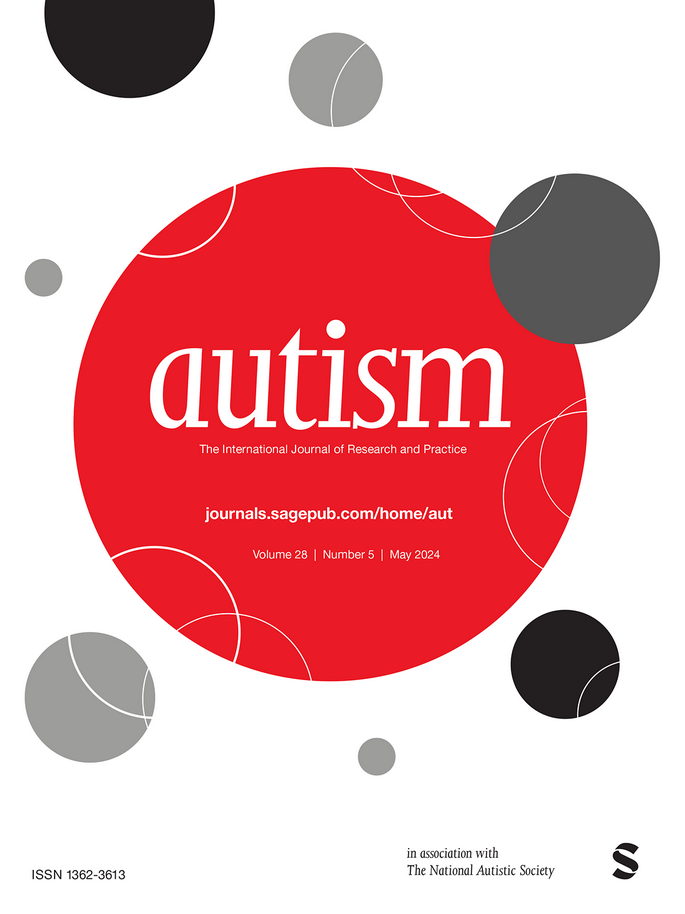高质量的员工与经理关系是事业成功的关键。
摘要
本研究调查了员工与管理者关系的感知质量与工作结果之间的关系,以及自闭症员工与非自闭症员工之间的关系是否存在差异。我们调查了189名来自英国的受雇参与者(n = 92名自闭症患者,n = 97名非自闭症患者)。参与者完成了员工与管理者关系质量的测量;例如,职场行为、优势运用和工作塑造;以及结果,比如职业发展机会和工作满意度。多元回归分析评估了员工与管理者关系对自闭症诊断行为和结果的影响。一个人与上司的关系是所有工作场所行为和结果的重要预测因素,解释了职业发展机会22%的差异,解释了其他因变量7%-11%的差异。自闭症诊断并不是员工与管理者关系质量和结果的独立预测因子。自闭症参与者认为他们与经理的关系比非自闭症员工差。这项研究强调了积极的员工与管理者关系对于职业成功的重要性,而不考虑神经类型。然而,自闭症员工对这些关系的评分较低,这凸显了对加强员工与管理者关系的战略的迫切需要。摘要良好的员工-经理关系是职业成功的关键,为什么这是一个重要的问题?对于许多自闭症成年人来说,找到并保持有意义的工作是一项挑战。职业成功的一个关键因素是员工和管理者之间的关系。研究表明,与经理的良好关系可以帮助员工发挥自己的优势,对工作更满意,并在职业生涯中成长。然而,我们对自闭症员工的情况知之甚少,他们可能在工作场所面临着独特的挑战。了解这些关系如何影响自闭症员工对于创造支持性、包容性和成功的工作环境非常重要。这项研究的目的是什么?该研究旨在探讨员工与管理者之间关系的质量是否会影响自闭症员工的职场成功。研究人员想知道这种关系是否会影响工作满意度、职业发展机会和在工作中发挥自己优势的能力。他们还将自闭症员工与非自闭症员工进行比较,看看在这些方面是否存在差异。研究人员做了什么?研究人员调查了189名来自英国的员工,其中包括92名自闭症患者和97名非自闭症患者。他们向参与者询问了他们与经理的关系、他们在工作中利用自己优势的频率、他们的工作满意度和职业发展机会。研究人员分析了这些数据,以了解经理与员工关系的质量对工作结果的影响程度。研究的结果和结论是什么?研究发现,无论是自闭症员工还是非自闭症员工,与上司关系的好坏都是职场成功与否的重要指标。这种关系比员工是否患有自闭症更重要。然而,自闭症参与者认为他们与经理的关系比非自闭症参与者差。This study investigated the relationship between the perceived quality of employee-manager relationships and workplace outcomes, and whether these differed between autistic and non-autistic employees. We surveyed 189 employed participants (n = 92 autistic, n = 97 non-autistic) from the United Kingdom. Participants completed measures of employee-manager relationship quality; workplace behaviours, for example, strengths use and job crafting; and outcomes, for example, career development opportunities and job satisfaction. Multiple regression analyses assessed the association between employee-manager relationship and autism diagnosis on behaviours and outcomes. One's relationship with their manager was a significant predictor of all workplace behaviours and outcomes, explaining 22% of the variance in career development opportunities and 7%-11% for other dependent variables. Autism diagnosis was not an independent predictor of the quality of the employee-manager relationship and outcomes. Autistic participants rated the relationship with their managers as poorer than non-autistic employees. This study emphasises the importance of positive employee-manager relationships for career success, irrespective of neurotype. However, the poorer ratings of these relationships by autistic employees highlight a critical need for strategies to enhance employee-manager relationships.Lay AbstractQuality Employee-Manager Relationships are Key to Career SuccessWhy is this an important issue?Finding and keeping meaningful work is challenging for many autistic adults. A key factor in career success is the relationship between employees and their managers. Research shows that a strong relationship with one's manager can help employees use their strengths, feel more satisfied in their jobs and grow in their careers. However, little is known about how this applies to autistic employees, who may face unique challenges in the workplace. Understanding how these relationships affect autistic employees is important for creating supportive, inclusive and successful work environments.What was the purpose of this study?The study aimed to explore whether the quality of the relationship between employees and their managers affects autistic employees' workplace success. The researchers wanted to know if this relationship impacts things like job satisfaction, career development opportunities and the ability to use their strengths at work. They also compared autistic employees to non-autistic employees to see if there were any differences in these areas.What did the researchers do?The researchers surveyed 189 employees from the United Kingdom, including 92 autistic and 97 non-autistic participants. They asked participants about their relationship with their manager, how often they used their strengths at work, their job satisfaction and their career development opportunities. The researchers analysed this data to see how much the quality of the manager-employee relationship influenced workplace outcomes.What were the results and conclusions of the study?The study found that the quality of the relationship with one's manager was a strong predictor of workplace success for both autistic and non-autistic employees. This relationship was more important than whether an employee was autistic. However, autistic participants rated their relationships with their managers as poorer than non-autistic participants.

 求助内容:
求助内容: 应助结果提醒方式:
应助结果提醒方式:


